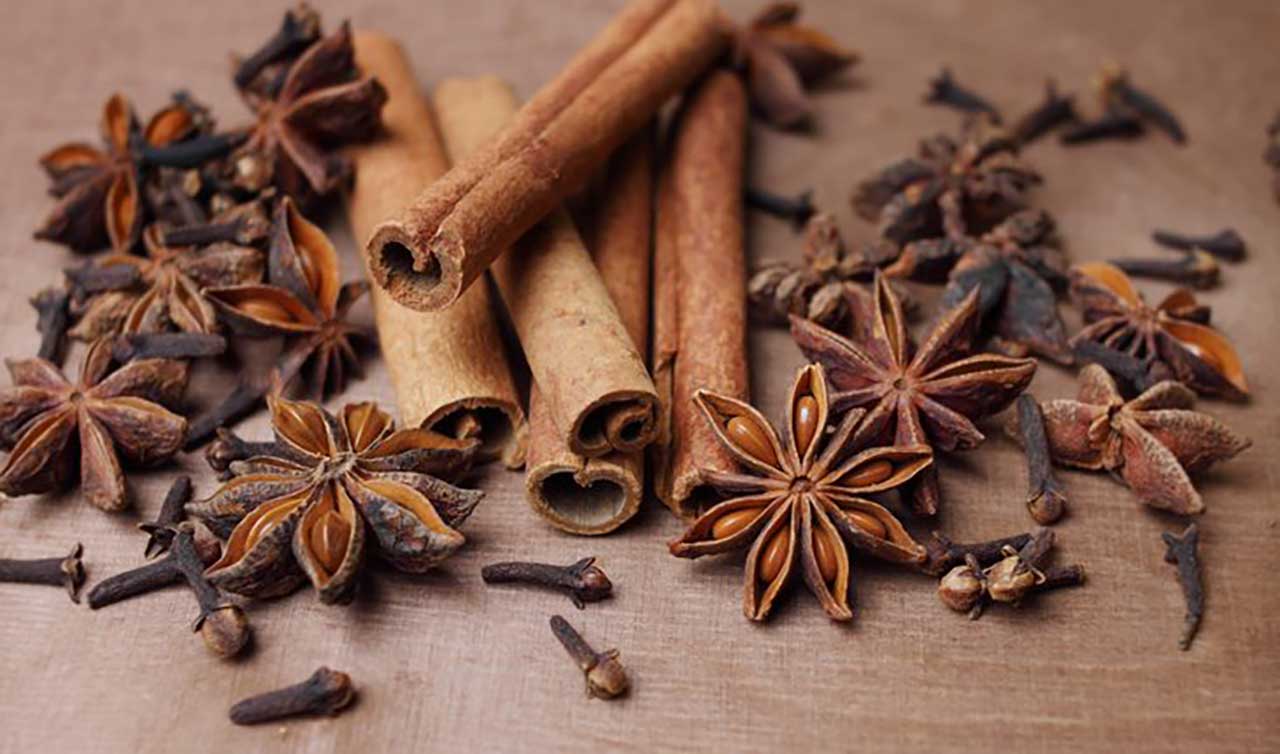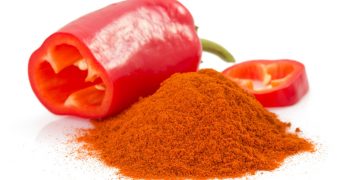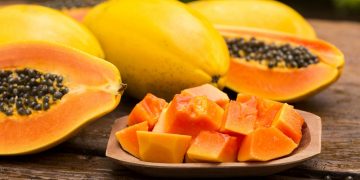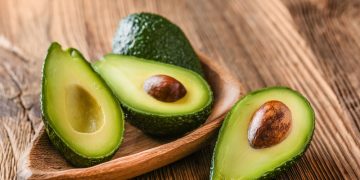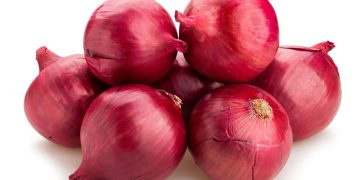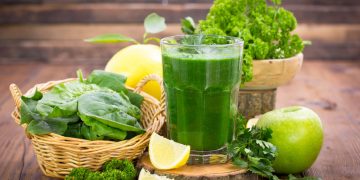More than any other time of year, the festive season surrounds us with scents and flavors of herbs and spices. There is something very evocative about these aromas and tastes that we associate with the depth of winter. Cinnamon, cloves and ginger, sage and rosemary – all conjure up festive memories, as well as making our traditional cookery extra tasty. Just think of turkey with sage and onion stuffing, roast lamb with rosemary, gingerbread, cinnamon sticks floating in a mug of mulled wine, and clove-studded oranges. Their sheer gorgeousness makes them worth including in our festive repertoire, but the benefits don’t stop there – the science is stacking up that plant compounds in our favorite Christmas herbs and spices could benefit our health as well. Read on for six surprising natural healers you are bound to come across this month (December).
Ginger

This popular root gets its flavor and pungent aroma from phenolic compounds including gingerols and shogaols. It’s a traditional remedy for nausea, especially motion sickness – in fact, many people swear by nibbling a ginger biscuit or sucking on a piece of crystallized ginger to ward off travel queasiness.
There are studies to back this up too: in a randomised placebo-controlled trial, scientists took 15 healthy volunteers with a history of travel sickness and spun them around to make them feel nauseous. They found that a pre-dose of 1g ginger delayed the onset of the queasiness, and helped the volunteers recover more quickly. A review of the published literature concluded ginger to be effective against morning sickness, too (pregnant women should ask their doctor before taking ginger through, and not take more than 1g per day). Plus research suggests that ginger can also be effective against postoperative nausea, and even the severe sickness associated with chemotherapy.
And ginger’s benefits don’t stop at the stomach – there’s also evidence that it may help reduce pain from osteoarthritis. In a study of 261 people with osteoarthritis of the knee, a twice-daily ginger supplement meant less pain and the need for fewer pain-killing medications. Animals studies also suggest that ginger could lower blood cholesterol.
Try it: Add ground ginger to Christmas baking, and grated fresh ginger to hot punches and hot toddies.
Cinnamon

There’s a lot of research to show that cinnamon can help balance blood sugar levels. A study from Malmo University, Sweden, found that just 3g of the spice reduced the amount of insulin needed to stabilize blood sugar levels in healthy volunteers after a meal. The spice could be particularly beneficial for diabetics. A study by American and Pakistani researchers found that taking 1-3g reduced fasting blood glucose levels, as well as the levels of the harmful LDL form of blood cholesterol. However, there’s still not enough evidence to support the clinical use of cinnamon in managing diabetes.
This spice also contains antioxidants, and animals studies suggest that these could help in wound healing. Some lab tests have shown cinnamon extracts to have anti-inflammatory, anti-bacterial and anti-fungal effects.
Try it: Add cinnamon to baking such as cinnamon rolls, and a pinch of gingerbread, and stir your latte with a cinnamon stick (or sprinkle some of the ground spice on top).
Cloves

Clove oil contains an active ingredient called eugenol, and oil of cloves (or clove buds themselves) has traditionally been rubbed on the gums for a toothache. However, there’s surprisingly little clinical evidence for its effectiveness, though a Kuwait study found clove oil gel to be as effective for dental pain relief as a pharmaceutical gel.
In addition, an analysis of cloves found them to be very high in polyphenol antioxidants, which help mop up the damaging free radical molecules that increase our risk of developing cardiovascular disease and cancer. A recent analysis of over 3100 foods and drinks found herbs and spices to be particularly high in antioxidants, with cloves the richest of all. Plus, a lab analysis of clove oil’s potential benefits found that it inhibited the growth of harmful bacteria including E.coli.
Try it: Stud your Christmas ham with cloves before cooking it, and float a few in your mulled wine.
Rosemary

There is a good scientific reasoning for adding rosemary to your Christmas roast. A lab study found that adding the herb to turkey meatballs meant they stayed tasty, and kept a good texture, for longer than ‘plain’ meatballs. Rosemary also inhibited the growth of some bacteria associated with food poisoning (though all this doesn’t mean you can neglect good food hygiene if you use herbs).
Just the aroma of rosemary can make you feel better. Research from Florida Atlantic University found that sniffing sachets of the herb helped test-taking students feel less stressed, and even reduced their heart rate. And a study by Japan’s Meikai University found that the scent of rosemary (and lavender) decreased stress hormone levels and increased the effect of antioxidants in the blood.
Like other herbs and spices, rosemary is rich in antioxidants, which help protect the lining of your arteries from the fatty build-up known as atherosclerosis. Rosemary could also help reduce your risk of heart attacks and strokes in other ways – a study on mice eating high-fat diets found that eating rosemary long-term protected them from harmful blood clots that cause a heart attack or stroke. Although the mice were eating a lot of rosemary in proportion to their size, it’s possible that eating the herb regularly could increase the heart-healthiness of your diet. Also, lab studies have shown that rosemary oil is a potent antibacterial and antifungal agent.
Try it: Rosemary is fantastic with all sorts of roasts – insert bits of rosemary under the skin of your Christmas turkey before roasting (the flavor will infuse the meat) or use for a twist on the traditional nut loaf. Add chopped rosemary to slow-roasted tomatoes and Mediterranean vegetables.
Nutmeg

Perhaps unsurprisingly for a spice, nutmeg is a source of useful antioxidants, though much less than other spices – less than one-tenth the antioxidant content of cloves, for example. Lab studies have also found that it contains a range of antibacterial compounds. However, many of the scientific references to nutmeg refer to the potentially toxic effects of mystiricin, its major active compound, which can cause hallucinations and convulsions. So, although the amounts using in cooking and drinks are unlikely to cause any problems, treat nutmeg with respect.
Try it: Add a little to wholegrain gingerbread and other Christmas bakes, and sprinkle it on eggnog.
Sage

This must-have herb could be just what you need during the stressful festive period. In research, including a double-blind placebo-controlled study of 30 healthy volunteers at the University of Northumbria, just one dose of 0.6g of sage powder improved people’s mood and helped them cope with stress. Even half that amount provided a detectable benefit. More research at the same university found that giving sage to healthy young adults improved their scores in memory tests, while they also reported a better mood. The researchers suggest that the mood effect could have helped the volunteers to retrieve information from their memories. And the herb could also help our memory as we get older! A follow up double-blind placebo-controlled trial found that it improved memory in a group of healthy older people with an average age of 73.
Sage is well known as a traditional remedy for sore throats, though ironically there’s been little research to prove its effectiveness. Like many herbs, it’s rich in phenolic compounds with potent antioxidant effects. It also contains volatile oils that kill harmful microbes such as E.coli and candida albicans in test tubes, though it’s not known whether eating the herb in cooking would also protect us from these bugs.
Try it: Make sage and onion stuffing for your Christmas table, or use sage and walnuts to make a Christmas pesto, just as you would basil and pine nuts.


